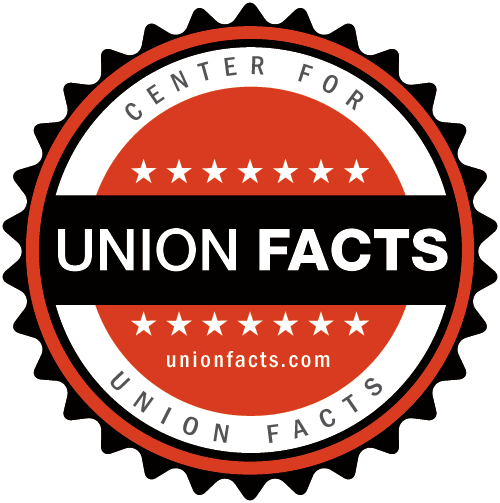Card Check Intimidation, Coercion, and Confusion
The claim of moral superiority is a favorite technique of union organizers when discussing coercion.
American Rights at Work, a union-funded organization, makes this case: “While we polled workers on union and employer coercion, it’s important to note that they aren’t equivalent. Pro-union workers and union organizers attempt to make their case persuasively. But when the person who signs your paycheck calls you into his office and tells you he’s against the union, that’s an entirely different kind of influence.”
The evidence tells a different story. A secret ballot prevents most ills, since no one knows how an employee will vote or voted, irrespective of signing a card. Conversely, a serious flaw in the public card check process is that it is inherently rife with the potential for intimidation by union officials.
In 1996, an employer presented evidence to the NLRB that “on the day before the election, a bargaining unit employee approached another employee and solicited her to sign a union authorization card. The card solicitor allegedly stated that the employee had better sign a card because if she did not, the Union would come and get her children and it would also slash her car tires.”
The modern record is full of cases of intimidation. Former United Steelworkers organizer Richard Torres wrote in a February 2007 letter to the House Education and Labor Committee that he quit his job when a union official “asked me to threaten migrant workers by telling them they would be reported to federal immigration officials if they refused to sign check-off cards.”
An affidavit given to the NLRB described a New Jersey food service staff member’s ordeal, where a union organizer visited her home and told her “I wouldn’t have a job in Sept. if I didn’t sign the card and that the Union would make sure that I was fired.”
Mike Ivey, a Freightliner employee, gained attention when he fought organizing attempts by the United Auto Workers. According to a March 2007 story, Ivey said, “Some employees have had five or more harassing visits from these (United Auto Worker) organizers … The only way, it seems, to stop the badgering and pressure is to sign the card.”
Peer pressure is a significant concern among employees who happen to be in the minority opinion, whether they support a union or not. Whereas a secret ballot protects these minorities, paid union staff and peers who support the union can pressure employees if their decision is public. A local of the United Food and Commercial Workers, for example, went so far as to institute a bounty system that offered a three-tier “incentive plan” to pay employees per signature they collected from their colleagues.
Coercion is not the only problem inherent in card check campaigns. Equally troubling are stories of union organizers gaining signatures from employees who didn’t understand the documents they were signing.
In the famous Gissel Packing case in 1969, the Supreme Court stated:
We would be closing our eyes to obvious difficulties, of course, if we did not recognize that there have been [card solicitation] abuses, primarily arising out of misrepresentations by union organizers as to whether the effect of signing a card was to designate the union to represent the employee for collective bargaining purposes or merely to authorize it to seek an election to determine that issue.
A host of recent stories verify this time-tested theory.
In April 2007 the Service Employees International Union in Oregon was forced to reach a settlement with the NLRB in which the union agreed to discontinue card check organizing for six months. Their offense? SEIU Local 49 officials allegedly tricked employees into signing “information flyers” that they later counted as votes favoring unionization. Perhaps not surprisingly, an NLRB regional official noted that the board had earlier reached a similar settlement with the same local.
The Rochester, Minnesota, Post-Bulletin published a telling April 2007 letter from a day-care worker being targeted by SEIU. She wrote:
The majority of day-care providers in Minnesota were manipulated into signing cards for the union by being told that if we signed, we would “get more information about the union.” The reality is that by signing, we are giving our support to the union and taking away our voting rights by the societies to which many belong.
These societies are our voices in the Legislature. The manipulative behaviors of the union have tricked many of us. The union is trying to use these cards to show our “support” for their agenda in the Legislature. Their agenda is to gain money for themselves, not to better the child-care industry …
The United Food and Commercial Workers faced similar complaints when it organized healthcare workers in Pennsylvania. After failed attempts to add new members through secret ballot elections, the union was able to obtain a card check organizing drive at a county-run nursing home in Allentown, even though 129 employees sought an election overseen by the government. One employee said some of her coworkers were “intimidated because of the pressure.” She further alleged that she and her colleagues were urged to sign cards showing interest only in an election, but were later told the cards meant they wanted union representation. She concluded, “It was very sneaky and unfair.” Another employee, who said she would have voted for the union in an election, added, “I feel like they snuck in … Now I don’t trust them.”

